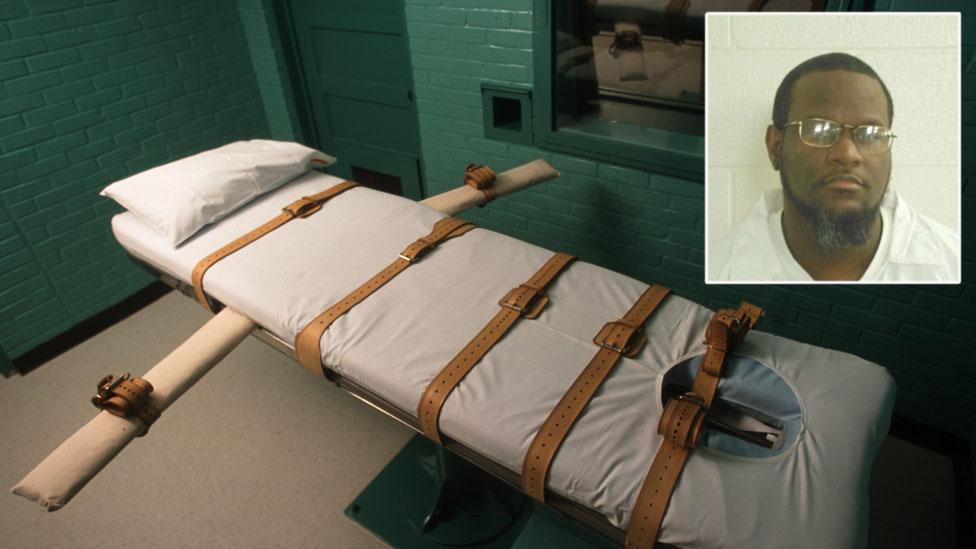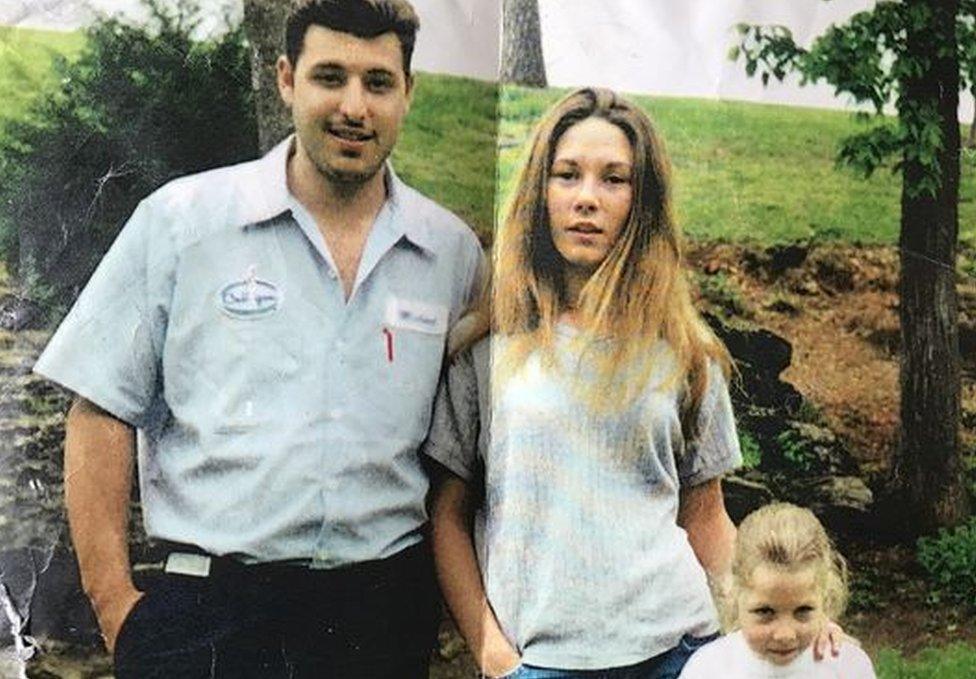Executed Arkansas man 'convulsed and groaned'
- Published

Kenneth Williams' lawyers said he was intellectually disabled
Lawyers for a US death row inmate are calling for an inquiry after witnesses said he convulsed and groaned as he was being executed.
Kenneth Williams was the fourth inmate put to death by the state of Arkansas in the past eight days after a dozen years without a single execution.
His attorneys said witness descriptions of the lethal injection procedure were "horrifying".
The United Nations on Friday condemned Arkansas' execution schedule.
"I see no reason for any investigation other than the routine review that is done after every execution," Governor Asa Hutchinson responded during a Friday press conference.
The state had initially planned to put to death eight men in a span of 11 days, but courts issued reprieves in half those cases.
The compressed schedule was because the state's stock of one lethal injection drug, the sedative midazolam, was due to expire at the end of this month, said officials.
Jack Jones was executed in Arkansas last Monday. His victim's widower has no sympathy for him
Journalists who saw Thursday night's execution said Williams' body jerked about 15 times in quick succession three minutes after he received the first of three injections.
His chest was said to press against the leather straps binding him to the gurney.
The Americans volunteering to watch executions
During a consciousness check, Williams groaned before falling still after seven minutes.
He was pronounced dead - 13 minutes after the procedure began - at 23:05 (04:05 GMT Friday).
His final words were: "I humbly extend my apologies to those families I have senselessly wronged."
Governor Hutchinson's spokesman dismissed the prisoner's movements as "an involuntary muscular reaction", to be expected with midazolam.
But Shawn Nolan, a lawyer for Williams, said it had been "a problematic execution" and accused the governor's spokesman of "trying to whitewash the reality of what happened".
"Press reports state that within three minutes into the execution, our client began coughing, convulsing, jerking and lurching with sound that was audible even with the microphone turned off," he added.
He said the legal team had earlier pleaded with the state to "avoid torturing our client to death".
But Republican state senator Trent Garner, who witnessed the execution, tweeted that Williams did not "seem in pain".
"It was not cruel, unusual, botched or torture," he added.
Ledell Lee maintained his innocence until his death
The United Nations' human rights office said it was "deeply troubled" that Arkansas had executed four men in eight days after a 12-year moratorium on the death penalty.
Spokeswoman Liz Throssell told reporters in Geneva that "rushing executions" can violate prisoners' rights by denying them the opportunity to seek clemency.
"Our concern is really the fact that these executions were scheduled because of the expiration date of the drug, and you are absolutely right that adds to the arbitrariness and cruelty of the whole process," said Ms Throssell, in response to a reporter's question.
The European Union also condemned the execution as "an unacceptable denial of human rights".
Williams was initially spared the death penalty when he was sentenced to life in prison for the 1998 murder of 19-year-old cheerleader Dominique Hurd.

Michael Greenwood, his wife Stacey and their daughter Kayla in the late 1990s
After a month in the penitentiary, he escaped in October 1999 by hiding in a barrel used to carry kitchen refuse.
Not far from the prison, he encountered Cecil Boren, 57, on his farm.
He killed Mr Boren, shooting him multiple times, and stole his Ford F-150 pick-up truck.
Williams drove north to Missouri, where he led police on a chase that caused the high-speed death of 24-year-old delivery driver Michael Greenwood.
After being jailed, Williams became an ordained Protestant minister, and wrote his autobiography as well as a book warning against gang life.